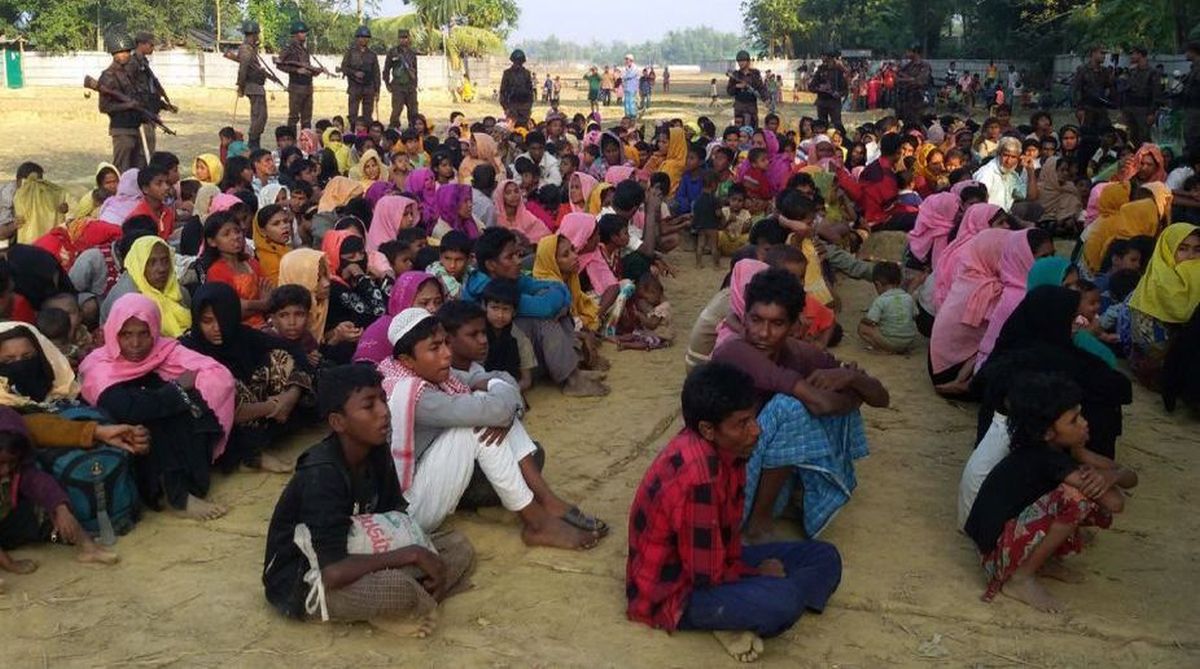Myanmar Fractures
Myanmar’s military junta, once feared as a monolithic force, is increasingly showing signs of internal decay.
Myanmar is “unable and unwilling” to investigate its abuses against Rohingya Muslims, a UN rights envoy has said, bolstering calls for the country’s generals to be hauled before an international court.

Rohingya Muslims (Photo: AFP PHOTO / STR)
Myanmar is “unable and unwilling” to investigate its abuses against Rohingya Muslims, a UN rights envoy has said, bolstering calls for the country’s generals to be hauled before an international court.
A UN fact-finding mission has called for Myanmar’s top brass to be investigated for genocide, crimes against humanity and war crimes over a brutal crackdown against Rohingya Muslims in Rakhine state that forced more than 720,000 of the beleaguered minority to flee the country to Bangladesh.
Advertisement
Myanmar has dismissed the allegations, slamming the UN body as biased, and the government has set up its own committee to investigate the crimes.
Advertisement
But UN special rapporteur to Myanmar Yanghee Lee – who has been barred from entering the country since December – said the government has shown little capacity for an unbiased probe into the violence, saying it has taken “limited and insufficient steps”.
“(Myanmar) is unable and unwilling to discharge its obligation to conduct credible, prompt, thorough, independent and impartial investigations and prosecutions,” Lee said in a report she published via her Twitter account on Monday.
Given Myanmar’s refusal to hold itself accountable, she added, it was up to international courts to seek justice.
“The onus is on the international community to take action,” she warned. “Any delay in instituting justice will only result in more violations.” In her conclusions she recommended the UN should “refer the situation in Myanmar to the International Criminal Court immediately”.
The northern part of Rakhine has been on lockdown since the violence broke out last August, with journalists and observers only allowed to visit on short, chaperoned trips.
UN investigators – who authored the explosive fact-finding report – were not allowed into the country while Lee has been barred from entering Myanmar since December for her sharp criticisms of the government’s treatment of the Rohingya.
Lee said she had asked India for permission to meet Rohingya refugees there but received no response from Delhi.
Myanmar’s de facto leader Suu Kyi – once lionised by the international community as a democracy icon – has seen a sharp fall from grace following her refusal to speak out against the military.
The UN fact-finding mission has pointed out that her government’s attempts to whitewash facts had worsened the situation for the embattled Rohingya.
Lee also raised alarm over declining press freedom in Myanmar after Reuters journalists Wa Lone and Kyaw Soe Oo were jailed for seven years each after reporting on the military’s role in the massacre of 10 Rohingya men in Inn Din village in northern Rakhine.
Describing their prosecution as “spurious”, she called for the pair to be released immediately.
The military has denied almost all accusations of genocide levelled against it, insisting that “clearance operations” were necessary to fight Rohingya militants.
The International Criminal Court has ruled that an investigation will go ahead as Bangladesh – which has received the Rohingya refugees fleeing across the border – is a signatory of the Rome statute that created the court.
Myanmar has not signed the statute, and a minister told the UN General Assembly that his government rejected the “dubious intervention”.
Advertisement